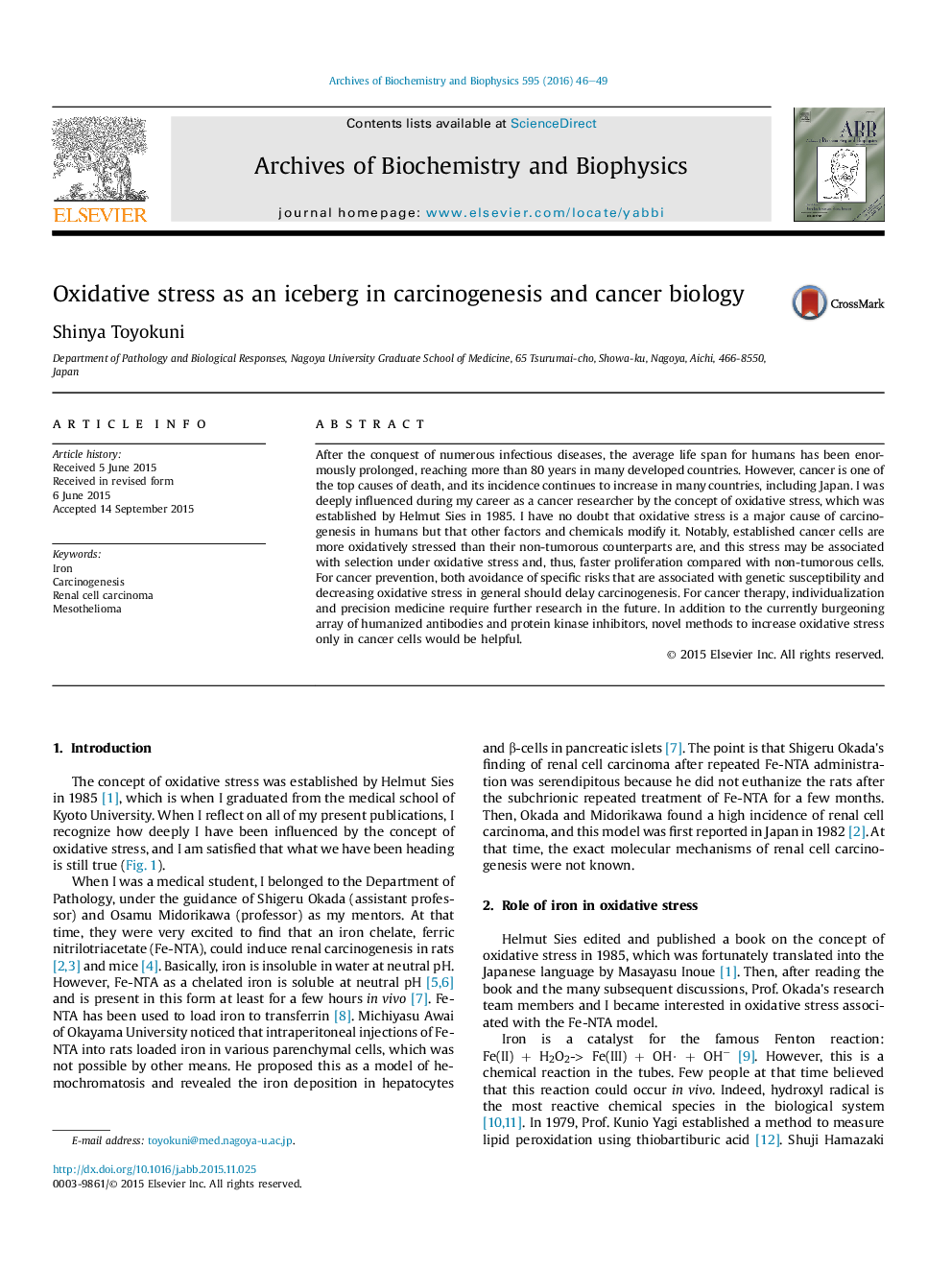| کد مقاله | کد نشریه | سال انتشار | مقاله انگلیسی | نسخه تمام متن |
|---|---|---|---|---|
| 8289397 | 1536308 | 2016 | 4 صفحه PDF | دانلود رایگان |
عنوان انگلیسی مقاله ISI
Oxidative stress as an iceberg in carcinogenesis and cancer biology
ترجمه فارسی عنوان
استرس اکسیداتیو به عنوان یک کوه یخ در سرطان زایی و زیست شناسی سرطان
دانلود مقاله + سفارش ترجمه
دانلود مقاله ISI انگلیسی
رایگان برای ایرانیان
کلمات کلیدی
اهن، سرطان زایی، کارسینوم سلولی کلیه، مزوتلیوما،
موضوعات مرتبط
علوم زیستی و بیوفناوری
بیوشیمی، ژنتیک و زیست شناسی مولکولی
زیست شیمی
چکیده انگلیسی
After the conquest of numerous infectious diseases, the average life span for humans has been enormously prolonged, reaching more than 80 years in many developed countries. However, cancer is one of the top causes of death, and its incidence continues to increase in many countries, including Japan. I was deeply influenced during my career as a cancer researcher by the concept of oxidative stress, which was established by Helmut Sies in 1985. I have no doubt that oxidative stress is a major cause of carcinogenesis in humans but that other factors and chemicals modify it. Notably, established cancer cells are more oxidatively stressed than their non-tumorous counterparts are, and this stress may be associated with selection under oxidative stress and, thus, faster proliferation compared with non-tumorous cells. For cancer prevention, both avoidance of specific risks that are associated with genetic susceptibility and decreasing oxidative stress in general should delay carcinogenesis. For cancer therapy, individualization and precision medicine require further research in the future. In addition to the currently burgeoning array of humanized antibodies and protein kinase inhibitors, novel methods to increase oxidative stress only in cancer cells would be helpful.
ناشر
Database: Elsevier - ScienceDirect (ساینس دایرکت)
Journal: Archives of Biochemistry and Biophysics - Volume 595, 1 April 2016, Pages 46-49
Journal: Archives of Biochemistry and Biophysics - Volume 595, 1 April 2016, Pages 46-49
نویسندگان
Shinya Toyokuni,
